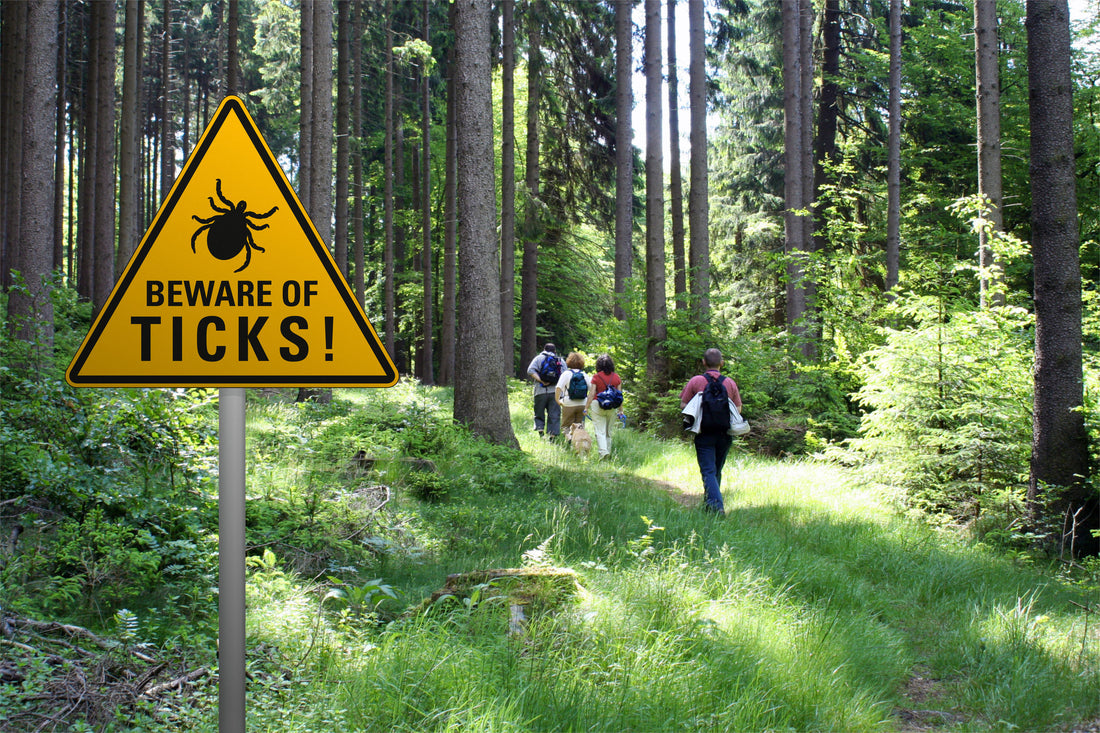
The new dangerous types of tick-borne diseases
Share
As people head outdoors during the summer, their risk of becoming infected with tick-borne diseases rises. Two cases of a rare tick-borne disease were confirmed in northern New Jersey.
- Powassan virus
Powassan virus is transmitted by three types of an infected tick, including the deer tick (black-legged tick) that transmits Lyme disease. Powassan virus cannot spread from person to person.
The symptoms can include fever, headache, swelling of the brain (encephalitis), swelling of the membranes that surround the brain and spinal cord (meningitis), vomiting, weakness, confusion, loss of coordination, trouble speaking and memory loss. However, many infected people never develop symptoms.
 Most US cases occur in the late spring, early summer, and mid-fall when ticks are most active. Warmer winters have led to an increased tick population, so experts predict rising tick-borne infections of many types.
Most US cases occur in the late spring, early summer, and mid-fall when ticks are most active. Warmer winters have led to an increased tick population, so experts predict rising tick-borne infections of many types.
There are no vaccines to prevent and no medicines to treat Powassan infection. McDonald noted that the tick must be attached, not just crawling on your skin, for illness to be transmitted.
Everyone is at risk for Powassan! Anyone bitten by an infected tick can get it, said Dr. Jennifer Lyons, chief of the Division of Neurological Infections and Inflammatory Diseases, Boston and an assistant professor of neurology at Harvard Medical School. "About 15% of patients who are infected and have symptoms are not going survive," said Lyons. "Of the survivors, at least 50% will have long-term neurological damage that is not going to resolve."
Although most infected people will never show symptoms, those who become sick usually do so a few days to about a week after the tick bite, but most symptoms can be detected after a month. The most common symptom can be fever and headache. "You basically feel nonspecific flu-like stuff," Lyons said, including "muscle aches and pains; maybe you have a little rash on your skin, but almost certainly, you'll have a fever and the headache."
The unlucky few who develop a more serious illness will do so "very quickly over the next couple of days," she said. "You start to develop difficulties with maintaining your consciousness and your cognition. ... You may develop seizures. You may develop the inability to breathe on your own." They need to be hospitalized to receive support with breathing and swelling in and around the brain.
If a person has other medical conditions, they are at greater risk for developing complications from the Powassan virus.
- Bourbon virus
Dr. William Schaffner, an infectious disease expert at Vanderbilt University Medical Center, said that little is known about who is at risk for the Bourbon virus since only a few people have been diagnosed with the disease.
“We don't really know that much about it,” Schaffner said. “It's so rare and we only have the capacity relatively recently to make these diagnoses.”
Bourbon virus was first diagnosed in a man from Bourbon County, Kan., who later died from the infection. 
Symptoms of people diagnosed with Bourbon virus disease included fever, tiredness, rash, headache, body aches, nausea, and vomiting. General laboratory findings included leukopenia and thrombocytopenia.
The symptoms are the followings: Fever, fatigue, decreased appetite, headache, arthralgia, myalgia, nausea, and diarrhea. This virus can cause more serious illnesses like Leukopenia, Thrombocytopenia and mild to moderate elevation of liver transaminases.
There is no medicine to treat Bourbon virus disease, doctors can only treat the symptoms. For example, some patients may need to be hospitalized and given intravenous fluids and treatment for pain and fever.
Preventing tick-borne diseases!!!
To prevent Powassan or any other tick-borne virus, you should prevent tick bites. Avoid high brushy areas whenever you're in the woods, wearing long sleeves and pants when feasible, using insect repellent and doing tick checks after being outdoors. Insect repellents that contain DEET, picaridin, IR3535 or use chemical-free repellents like TICKLESS Human/ Baby/ Kid and Hunter.
"Inspect yourself when outside, and shower immediately upon coming back in to find and remove ticks"
